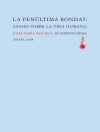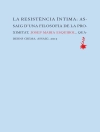Human Kindness and the Smell of Warm Croissants makes philosophy fun, tactile, and popular. Moral thinking is simple, Ruwen Ogien argues, and as inherent as the senses. In our daily experiences, in the situations we confront and in the scenes we witness, we develop an understanding of right and wrong as sophisticated as the moral outlook of the world’s most gifted philosophers. By drawing on this knowledge to navigate life’s most perplexing problems, ethics becomes second nature.
Ogien explores, through experimental philosophy and other methods, the responses nineteen real-world conundrums provoke. Is a short, mediocre life better than no life at all? Is it acceptable to kill a healthy person so his organs can save five others? Would you swap a ‘natural’ life filled with frustration, disappointment, and partial success for a world in which all of your needs are met, but through artificial and mechanical means? Ogien doesn’t seek to show how difficult it is to determine right from wrong or how easy it is for humans to become monsters or react like saints. Helping us tap into the wisdom and feeling we already possess in our ethical ‘toolboxes, ‘ Ogien instead encourages readers to question moral presuppositions and rules; embrace an intuitive sense of dignity, virtue, and justice; and pursue a pluralist ethics suited to the principles of human kindness.
قائمة المحتويات
Preface: An Antimanual of Ethics
Acknowledgments
Introduction: What Is the Use of Thought Experiments?
Part I. Problems, Dilemmas, and Paradoxes: Nineteen Moral Puzzles
1. Emergencies
2. The Child Who Is Drowning in a Pond
3. A Transplant Gone Mad
4. Confronting a Furious Crowd
5. The Killer Trolley
6. Incest in All Innocence
7. The Amoralist
8. The Experience Machine
9. Is a Short and Mediocre Life Preferable to No Life at All?
10. I Would Have Preferred Never to Have Been Born
11. Must We Eliminate Animals in Order to Liberate Them?
12. The Utility Monster
13. A Violinist Has Been Plugged Into Your Back
14. Frankenstein, Minister of Health
15. Who Am I Without My Organs?
16. And If Sexuality Were Free?
17. It Is Harder to Do Good Intentionally Than It Is to Do Evil
18. We Are Free, Even If Everything Is Written in Advance
19. Monsters and Saints
Part II. The Ingredients of the Moral ‘Cuisine’
20. Intuitions and Rules
21. A Little Method!
22. What Remains of Our Moral Intuitions?
23. Where Has the Moral Instinct Gone?
24. A Philosopher Aware of the Limits of His Moral Intuitions Is Worth Two Others, Indeed More
25. Understand the Elementary Rules of Moral Reasoning
26. Dare to Criticize the Elementary Rules of Moral Argument
Conclusion
Glossary
Notes
Index
عن المؤلف
Ruwen Ogien holds doctorates in both philosophy and social anthropology. He is a director of research in moral philosophy at the Centre National de la Recherche Scientifique and sits on the editorial board of the review Raison Publique. His most recent works include Le corps et l’argent and La vie, la mort, l’état: Le débat bioéthique.Martin Thom was trained in social anthropology and is a professional translator, editor, and writer.












